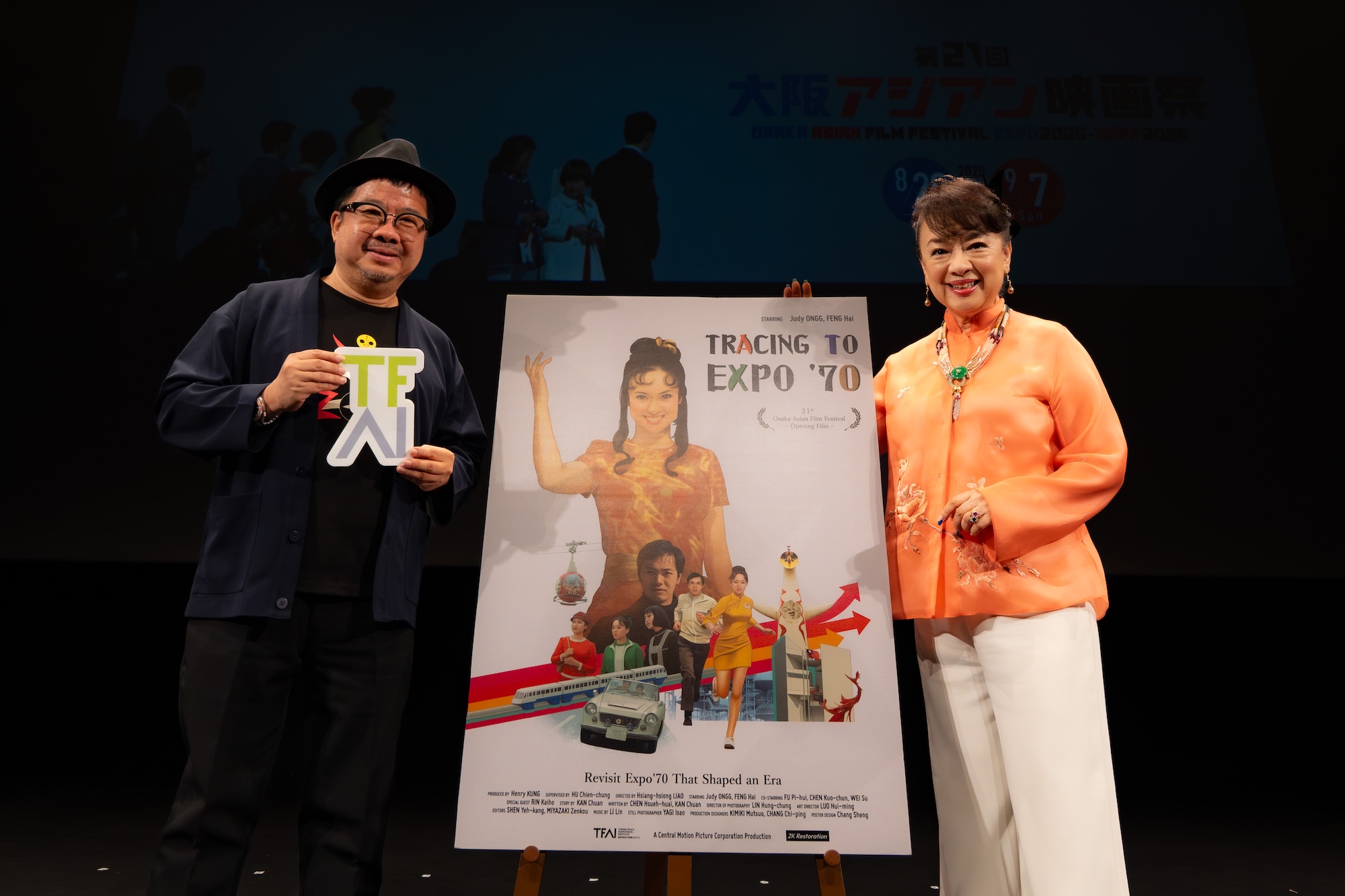
As global attention turns to Expo 2025 Osaka, the 21st Osaka Asian Film Festival (OAFF, August 29 – September 7) opened with the world premiere of Tracing to Expo ’70 (2K Restoration), restored by the Taiwan Film and Audiovisual Institute (TFAI). Starring then-20-year-old Taiwan–Japan superstar Judy ONGG, the film returns to Osaka’s big screen 55 years after its original release. Tickets sold out immediately, underscoring the strong anticipation among cinephiles and Expo enthusiasts.
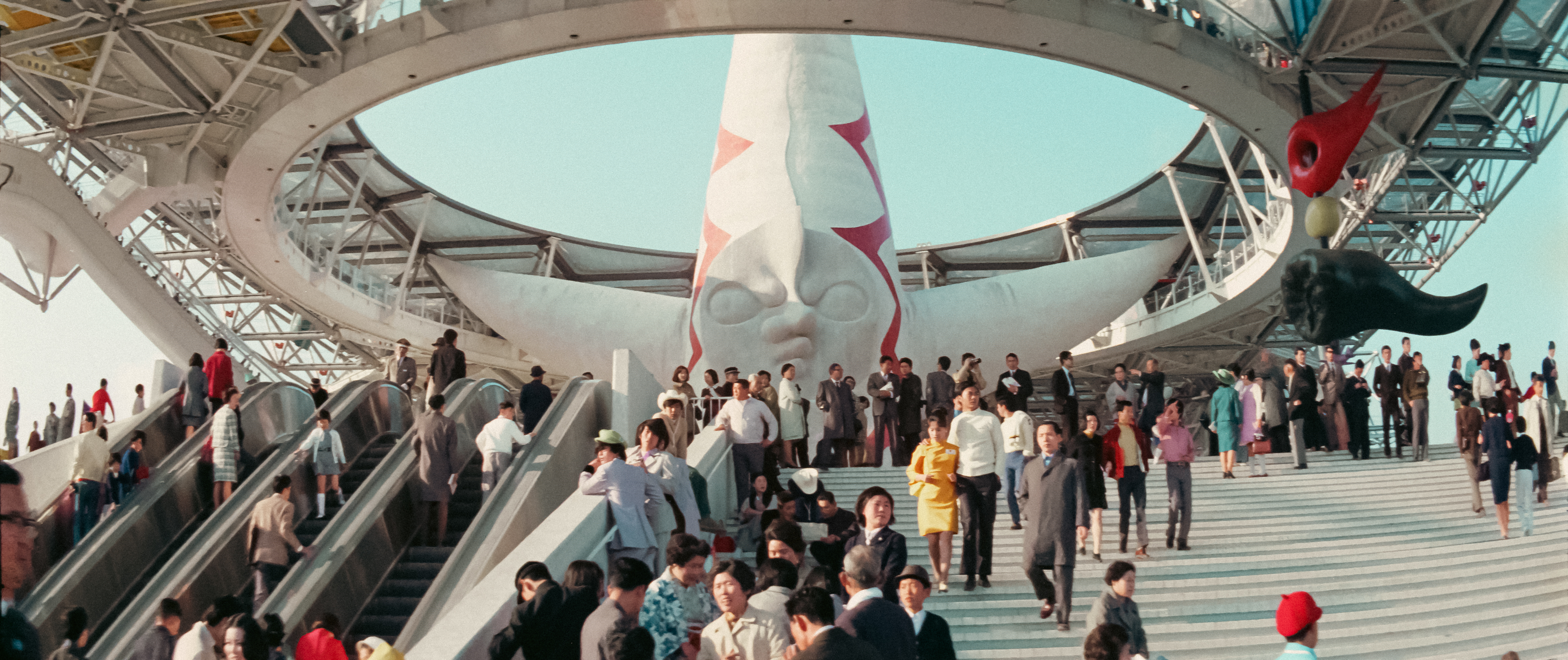
➤ After half a century, Tracing to Expo ’70 (2K Restoration) returned to Osaka for its world premiere.
The opening ceremony was followed by the screening, which offered audiences a vivid glimpse of the 1970 Osaka Expo. The restored images bridged past and present, sparking laughter and amazement throughout the theater and highlighting cinema’s power to preserve memory.
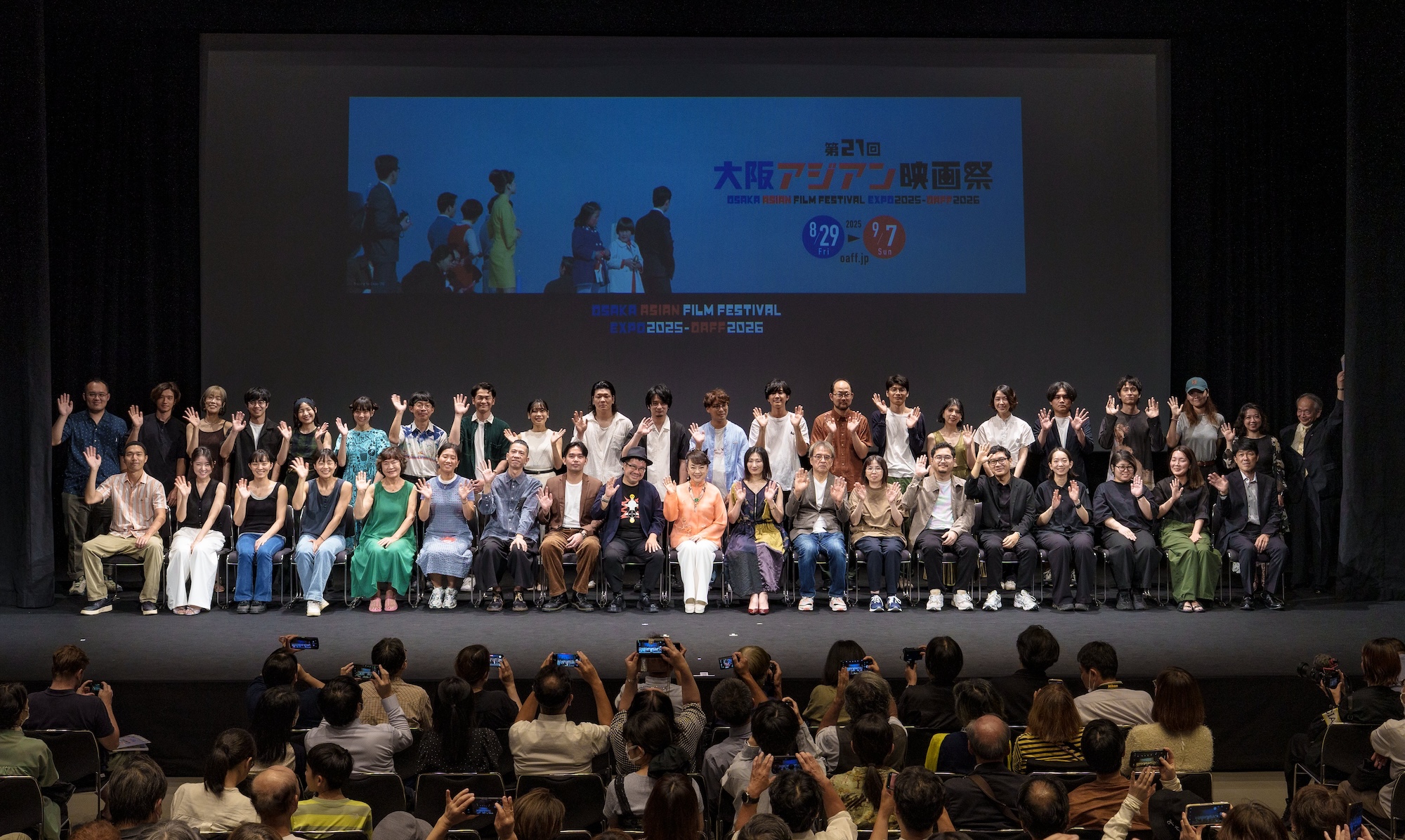
➤The world premiere of TFAI’s Tracing to Expo ’70 (2K Restoration), selected as the Opening Film of OAFF, was met with overwhelming enthusiasm, playing to a full house.
(© OAFF EXPO2025-OAFF2026)
The evening reached its peak when Judy ONGG appeared in person for a post-screening talk. She greeted the audience in fluent Japanese and Taiwanese and recalled styling all her costumes herself. She also shared anecdotes from filming, including running through snowy Hokkaido streets in high heels, drawing warm applause.
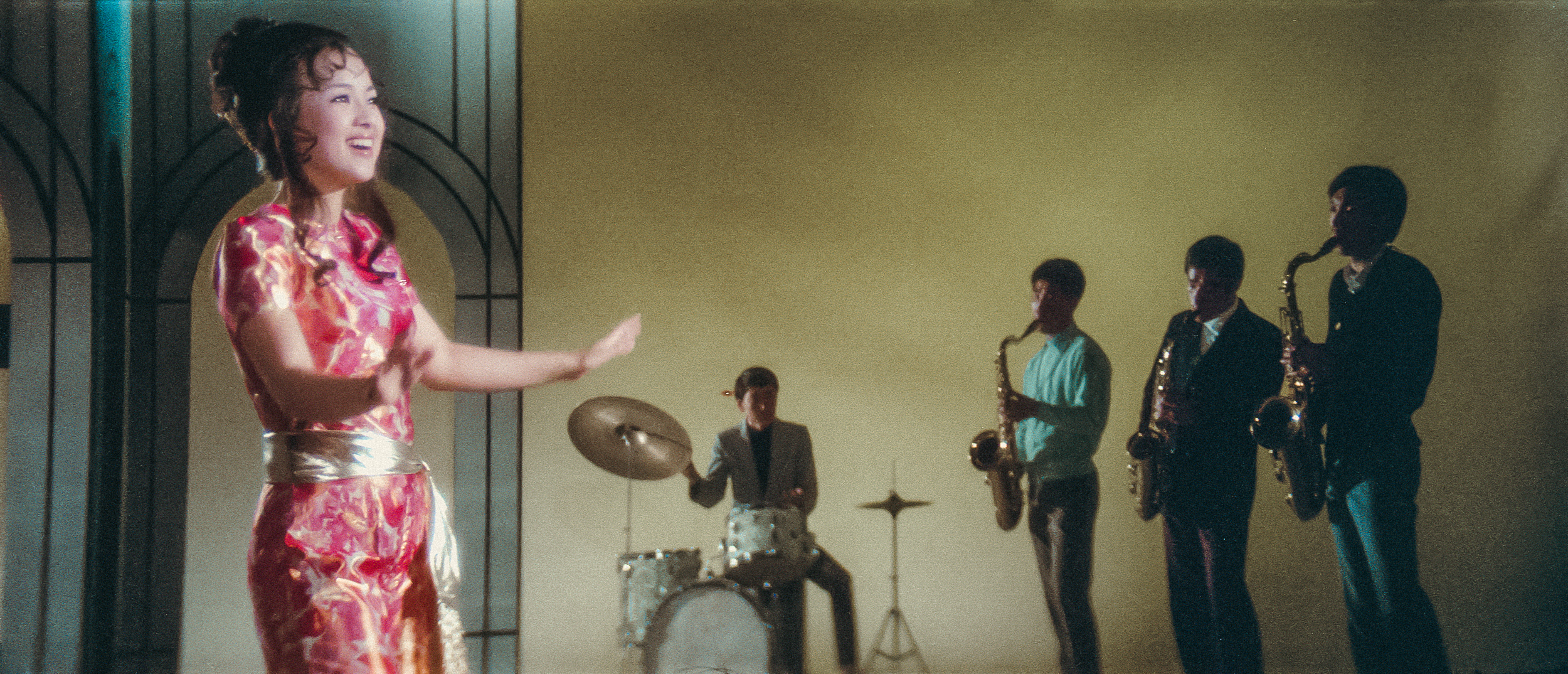
➤ Judy ONGG styled her own looks for the film.
TFAI Chairperson Arthur CHU (褚明仁) remarked: “The highlight tonight is standing alongside Ms. ONGG. As someone from the Expo generation, I vividly remember watching the opening ceremony on television 55 years ago. To relive those moments today is deeply moving. Restoring Tracing to Expo ’70 is not only about reviving a film, but about restoring the spirit of its era.”
The festival also featured the film on its official poster and published CHU’s bilingual essay reflecting on its cultural and historical significance. OAFF Programme Director Sozo TERUOKA (暉峻創三) praised the restoration as “a discourse spanning international politics, Taiwan–Japan exchange, and film history,” while highlighting its striking costumes, colors, and music.
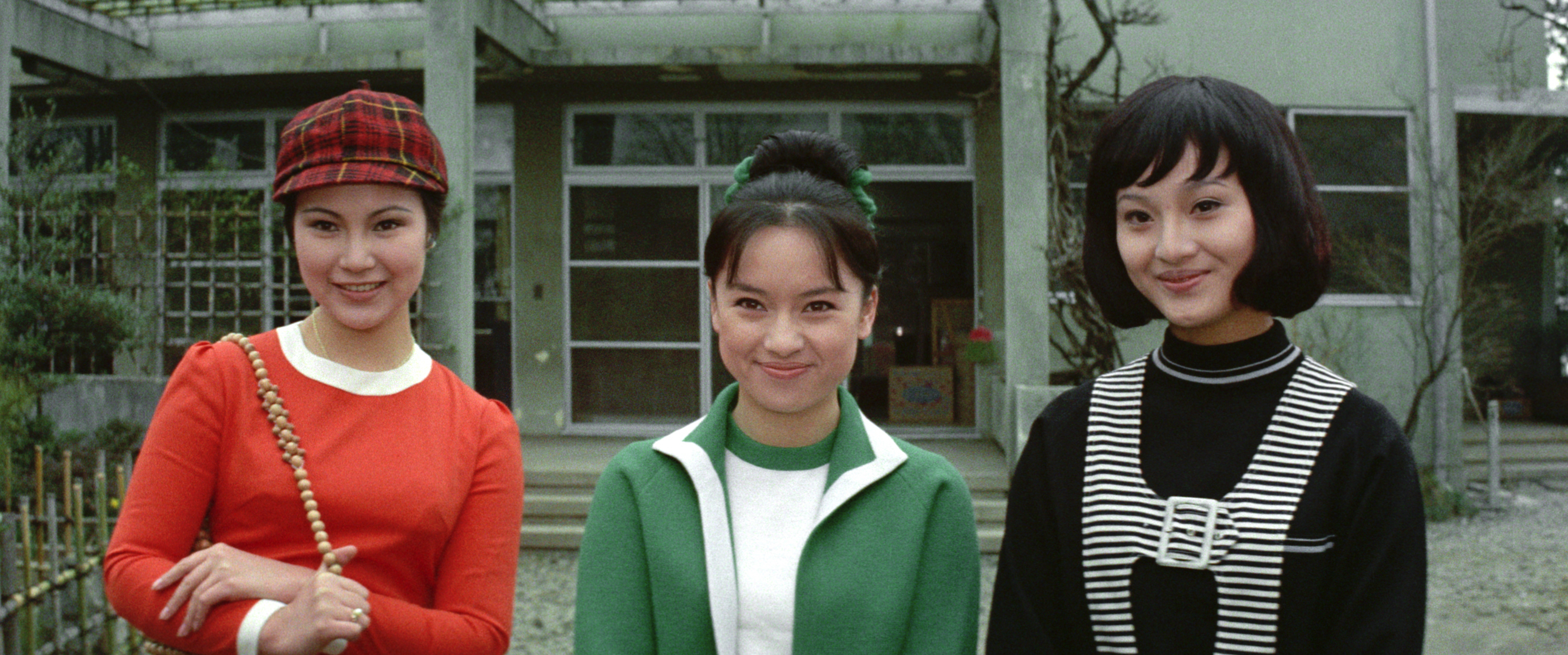
➤ Osaka Asian Film Festival Programme Director Sozo TERUOKA praised the film’s costumes, color design, and music.
Rarely seen since its 1970 release, Tracing to Expo ’70 was long regarded in Japan as a “phantom film.” TERUOKA first discovered it while curating the 2003 Tokyo International Film Festival’s “Judy ONGG’s Taiwan Film Era” retrospective but was unable to present it then due to the deteriorated print. He expressed gratitude that TFAI completed the digital restoration in time for OAFF and entrusted the world premiere to the festival.
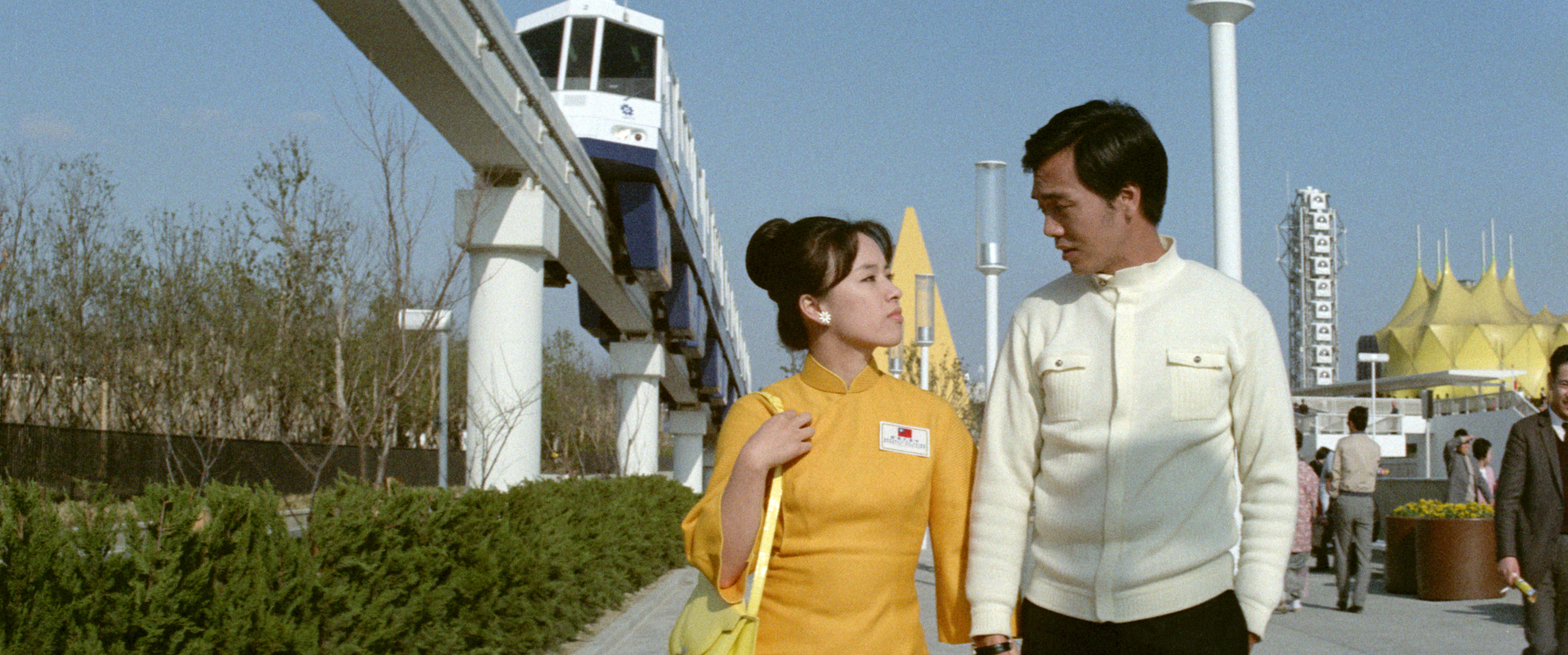
➤ Tracing to Expo ’70 (2K Restoration) gives audiences a glimpse of the differences between the 1970 World Expo and today’s Expo.
In addition to Tracing to Expo ’70, TFAI present other restored works at OAFF, including the Taiwan–Japan co-produced tokusatsu Dragon Superman (2K Restoration), the Taiyupian (Taiwanese-language feature) Goodbye Seventeen (2K Restoration), and the teen romance The Fellow Who Rejected College – 2025 Director’s Edition (2K Restoration). Together, these films showcase the richness of Taiwan’s cinematic heritage.

